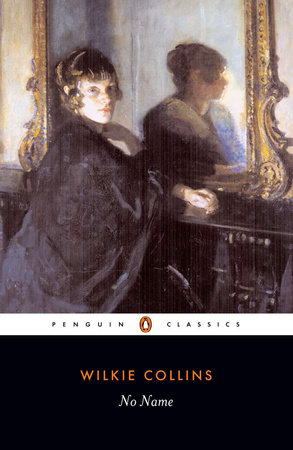
No Name
Wilkie Collins; Edited with an Introduction and Notes by Mark Ford
Paperback
July 1, 1995 | ISBN 9780140433975
AmazonBarnes & NobleBooks A MillionBookshop.orgHudson BooksellersPowell'sTargetWalmart
About the Book
Wilkie Collins's investigation of illegitimacy and 'the woman question' in No Name (1862) compels with a wholly different order of suspense from that of The Woman in White or The Moonstone. For its family secret - the Vanstone daughters' illegitimacy, their consequent disinheritance and fall from social grace - is revealed early on, and as Magdalen Vanstone struggles to reclaim her identity, the plot uncovers many a moral, social and legal skeleton in the cupboards of Victorian society. Mercurial and unscrupulous, Magdalen is Wilkie Collins's most exhilarating heroine, one of the rare subversives in Victorian fiction and a woman dazzlingly versatile in her powers of self-transformation. Through her, with great comic vigour, No Name exposes how social identity is constructed, and how it can be dismantled, buried, borrowed or invented.
For more than seventy years, Penguin has been the leading publisher of classic literature in the English-speaking world. With more than 1,700 titles, Penguin Classics represents a global bookshelf of the best works throughout history and across genres and disciplines. Readers trust the series to provide authoritative texts enhanced by introductions and notes by distinguished scholars and contemporary authors, as well as up-to-date translations by award-winning translators.


